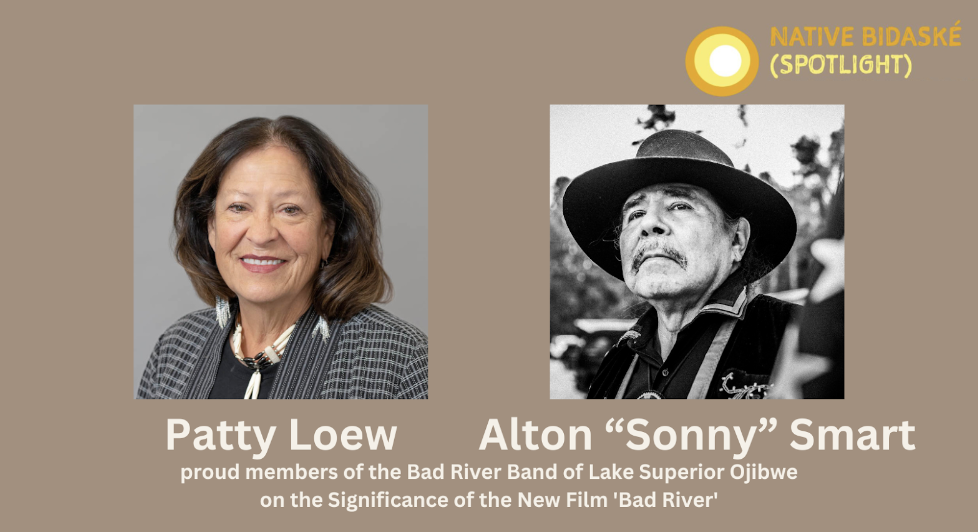
- Details
- By Native News Online Staff
Join us on Friday, March 8, as Native News Online Founder and Publisher Levi Rickert sits down with Patty Loew and Alton "Sonny" Smart, members of the Bad River Band of Lake Superior Ojibwe. This discussion will delve into the profound significance of the upcoming film "Bad River” by filmmaker Mary Mazzio.
The fight against the Enbridge Line 5 pipeline is symbolic of the ongoing struggle faced by the Bad River Band of Lake Superior Chippewa Indians to safeguard their ancestral lands and waters. This struggle takes center stage in "Bad River," a powerful new documentary set to premiere on March 15. Narrated by Indigenous activist and model Quannah Chasing Horse, the film promises to be a stirring testament to resilience and resistance.
In our discussion, we'll explore the historical and cultural context surrounding Indian Affairs; the enduring dependence on the Bureau of Indian Affairs; and the far-reaching consequences of resource extraction. We'll emphasize the importance of understanding the rich history and culture of the Bad River community, raising awareness, and fostering activism among tribal members to protect sovereignty and cultural preservation.
Patty Loew, an esteemed member of the Bad River Band of Lake Superior Ojibwe, brings her expertise as a professor, author, and documentary filmmaker, focusing on Ojibwe treaty rights, cultural expression, and environmental activism. Meanwhile, Alton "Sonny" Smart, a revered elder of the Bad River Band, will share his insights as a spiritual leader, educator, and Vietnam War Veteran, bridging cultural divides and enriching communities through his unique blend of cultural knowledge and Western approaches.
Catch this enlightening episode of Native Bidaské LIVE airing at Noon ET on Native News Online's Facebook, X (Twitter), or YouTube channel.
More Stories Like This
Native News Weekly (August 25, 2024): D.C. BriefsUS Presidents in Their Own Words Concerning American Indians
NDAA passes House; Lumbee Fairness Act Advances
NFL, Vikings to Host Native All-American Game, Youth Flag Clinic
Senate Committee on Indian Affairs Passes 12 Bills to Strengthen Tribal Communities
Help us defend tribal sovereignty.
At Native News Online, our mission is rooted in telling the stories that strengthen sovereignty and uplift Indigenous voices — not just at year’s end, but every single day.
Because of your generosity last year, we were able to keep our reporters on the ground in tribal communities, at national gatherings and in the halls of Congress — covering the issues that matter most to Indian Country: sovereignty, culture, education, health and economic opportunity.
That support sustained us through a tough year in 2025. Now, as we look to the year ahead, we need your help right now to ensure warrior journalism remains strong — reporting that defends tribal sovereignty, amplifies Native truth, and holds power accountable.
 The stakes couldn't be higher. Your support keeps Native voices heard, Native stories told and Native sovereignty defended.
The stakes couldn't be higher. Your support keeps Native voices heard, Native stories told and Native sovereignty defended.
Stand with Warrior Journalism today.
Levi Rickert (Potawatomi), Editor & Publisher


